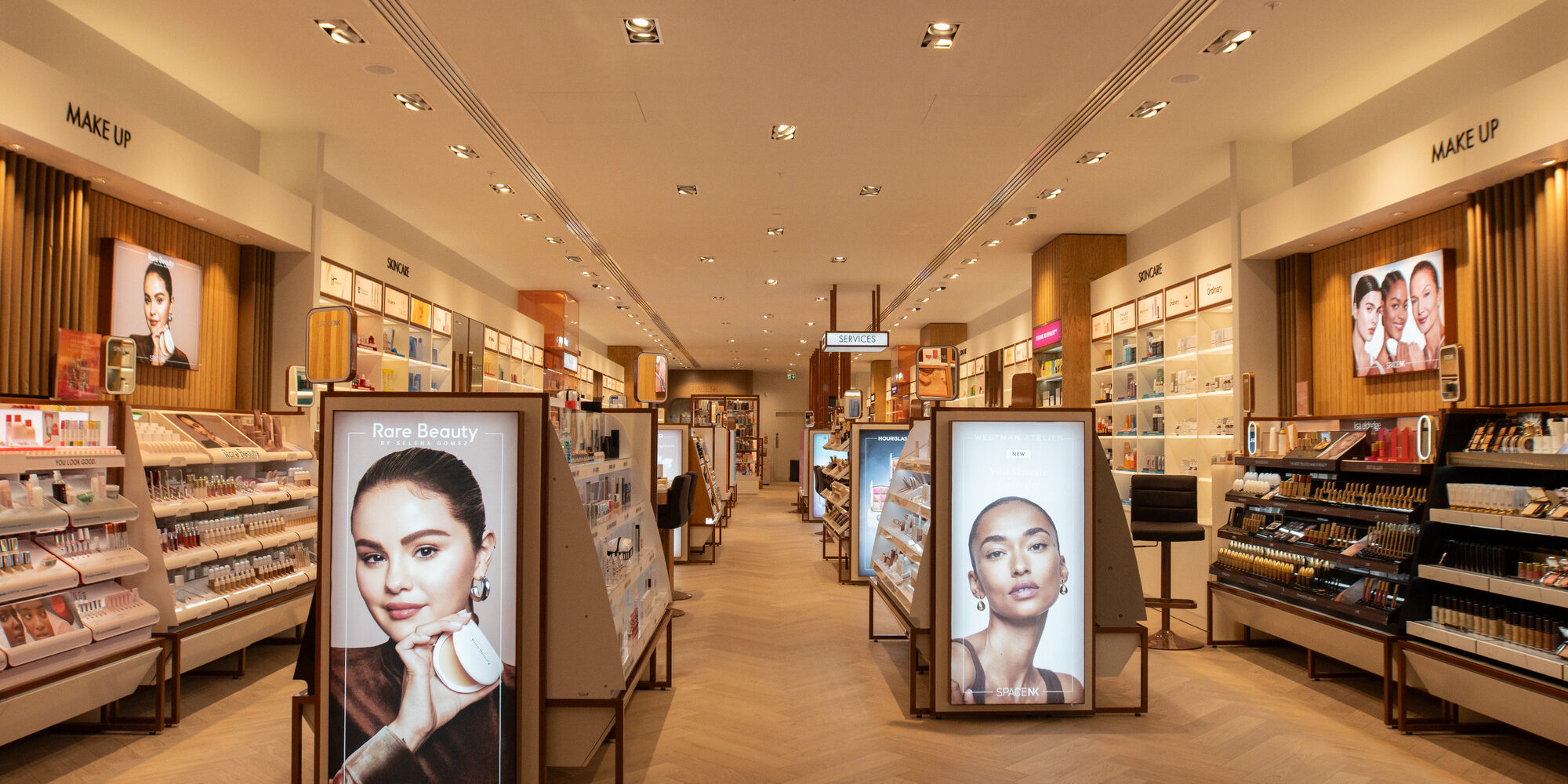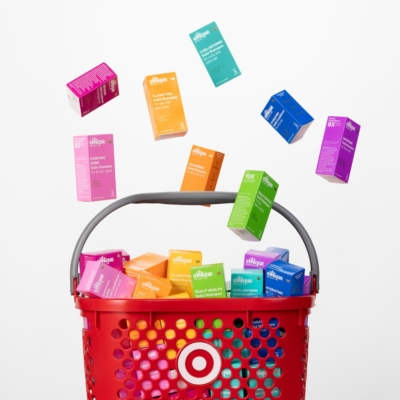
Space NK Halts American E-Commerce As It Grapples With Tariff Impacts
As it wrestles with the effects of heightened tariffs on goods entering the United States, Space NK informed customers Wednesday that it’s temporarily halting online purchases for customers in the country.
In a brief email, the British beauty specialty retailer explained, “We’re making some changes to how we serve our U.S. customers. As we adapt to the latest U.S. tariff regulations, we’ve decided to pause e-commerce orders and shipping to the U.S. to avoid incorrect or additional costs being applied to our customers’ orders.” It didn’t mention how long the pause could last.
On April 5, the U.S. socked most countries in the world, including the United Kingdom, with 10% tariffs, sending shockwaves across industries dealing with higher costs and difficult decisions about whether to pass them on to consumers. International companies with relatively low American sales are weighing whether to focus on their operations elsewhere, at least until the implications of President Donald Trump’s global trade war are better understood. However, pulling out of the U.S., the world’s largest consumer market, could be risky.
Neil Saunders, managing director of retail at data analysis firm GlobalData, argues Space NK’s e-commerce retreat from the U.S. will hurt it despite its limited presence in the country. “This pause is disruptive, and it will cost the company some revenue,” he says. “While U.S. shoppers can get Space NK products from physical stores, those that prefer to shop online might look for alternatives. That could have a longer term impact on customer loyalty, an area where Space NK has traditionally excelled.”

Space NK sold its U.S. wholesale division to beauty distribution company The PCA Companies last June for an undisclosed sum in a deal that included 600 points of distribution at Nordstrom, Nordstrom Rack, Bloomingdale’s, Hudson Bay and Walmart. In 2020, Space NK shuttered eight stores it had in the U.S. In the U.K., it has about 80 stores. Investment firm Manzanita Capital has owned Space NK since 2002.
On Thursday, it was reported that Manzanita has put the retailer up for sale over a year after hiring bankers at Raymond James to find potential buyers for it. According to British news outlet Sky News, Manzanita aims to fetch between 300 million and 400 million pounds or approximately $398 million and $531 million in a deal. In 2018, Manzanita had considered offloading Space NK, but decided to keep it. Back then, Unilever was rumored to be interested in buying it.
Catherine Bossom, founder of British beauty brand consultancy Yellow Flamingo, isn’t convinced Space NK’s pause on U.S. e-commerce pause will inflict much pressure on its bottom line. Nearly half of the retailer’s sales are from e-commerce. Medik8, Rare Beauty, Charlotte Tilbury, Sol de Janeiro, Tatcha, Glossier, Diptyque and Hourglass are bestselling brands on Space NK’s site.
“I can’t see that there are huge numbers of brands available at Space NK that aren’t already in the U.S.,” says Bossom. “It’s more likely to affect individual brands who aren’t available in the U.S. market through other retailers, but I think that this probably makes up a small percentage of their [Space NK’s] business. I think the impact is likely to be swallowed by their overall growth.”
Space NK has been posting repeated sales gains. Last year was its fourth year in a row of posting at least 30% annual sales growth. In the year ended March 24, its sales rose 34% to 196.5 million pounds or approximately $261.9 million. Same-store and e-commerce sales both increased 28% during the period, with pre-tax profits growing from 1.5 million pounds or $2 million to 7.5 million pounds or nearly $10 million. In the six months ending in September last year, sales were up 38% as the retailer gained ground with gen Z and gen alpha shoppers.
Among the many businesses that are being rattled by Trump’s trade policies, e-commerce is taking them hard, particularly Chinese e-commerce players. On April 2, Trump signed an executive order to remove the de minimis exemption that spares Chinese shipments valued at or under $800 from duties on Friday. Low-cost deliveries have facilitated tens of billions of dollars’ worth of e-commerce purchases from Chinese companies Temu and Shein, and without them, their sales could slide.
“This pause is disruptive, and it will cost the company some revenue.”
Most imports from China are now being tariffed at a 145% rate. Temu has begun to show its customers how much the cost of tariffs is adding to their purchases. In an article on Tuesday, The New York Times detailed, “For example, a cart of 10 items from Temu, including a 50 pack of heavy-duty hangers for $70.50, a men’s green linen shirt for $19.38 and a fluffy pink dog bed for $24.05, came out to $275.03, including international freight charges, and $10.20 in sales tax. But at checkout, the website tacked on $343.26 in import charges, bringing the total to $628.49.”
There have been fevered discussions on social media about the repercussions of tariffs on K-Beauty online sales, with K-Beauty aficionados noting that K-Beauty e-tailer YesStyle ships out of Hong Kong. In an Instagram post on April 18, Charlotte J. Cho, co-founder of U.S.-based K-Beauty e-commerce site Soko Glam, advised followers to stock up on their favorite K-beauty products during a 20% Friends and Family sale before tariff-related price increases potentially occur.
“I want you to be a smart shopper,” she says. “If you have a favorite toner or something, it kinda is the time to buy because things might be the cheapest it’s ever been. I do think it’s headed in that direction.”
On April 3, Trump imposed 25% tariffs on imports from Canada, leading untold numbers of Canadian companies to rethink their e-commerce ventures in the U.S. On April 20, Canadian skincare brand Temi shared in an email that it was suspending U.S. e-commerce sales. As they respond to Trump’s actions, Canadian beauty brands have joined forces to support each other, and several launched new e-commerce site IndieBeautyCollective to sell Canadian beauty products from indie brands to Canadian beauty shoppers.
So far, apart from Space NK, there doesn’t seem to be a broad pullback from British beauty e-tailers serving American customers. Beauty Bay, Lookfantastic and Cult Beauty are still shipping to U.S. In releasing its first-quarter earnings, Lookfantastic and Cult Beauty parent company THG Holdings warned the tariffs could dent its business in the second half of the year, but expected the damage to be less than 1 million pounds or $1.34 million.
This story was updated with new information on May 1.





Leave a Reply
You must be logged in to post a comment.